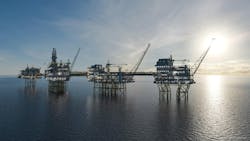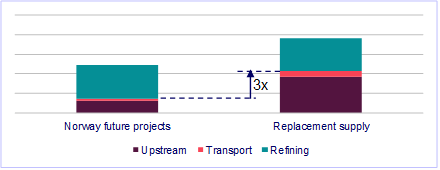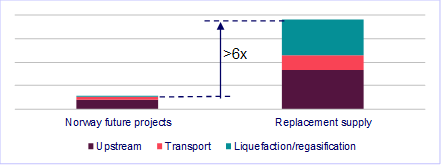Report highlights lower CO2 emissions intensity of Norway’s oil and gas
Wood Mackenzie has prepared a report for Aker BP assessing the impact of reducing oil and gas production offshore Norway.
This was in response to recent court rulings in Norway that invalidated permits for three offshore oil and gas developments. The court found that the project partners did not consider the impact of the future use of produced hydrocarbons on the global climate.
WoodMac’s Norway Emission Assessment report determined that Norway, which produced about 4 MMboe/d, exports more than 90% of its production to markets in Europe.
However, if oil and gas from future Norwegian developments were to be replaced with like-for-like imported volumes from other parts of the world, this would increase emissions by 230 MM metric tons of CO2 equivalent (tCO2e) between 2024 and 2040.
“This means that Norway’s oil and gas, which has the world’s lowest average carbon emissions intensity, also has a critical role to play,” he said.
The low intensity levels, he explained, arise from the country’s strict operating standards, which include widespread electrification of operations from hydropower and methane management.
Norway’s proximity to the European market is also significant, as transportation of oil and gas from markets farther away would increase the emissions involved.
The report also found that oil imported into Europe had three times the carbon intensity as Norwegian oil, while imported gas had six times higher intensity.
Wood Mackenzie’s study examined emissions generated during oil and gas production (upstream), transportation to market and refining, and liquefaction and regasification for LNG imports.


